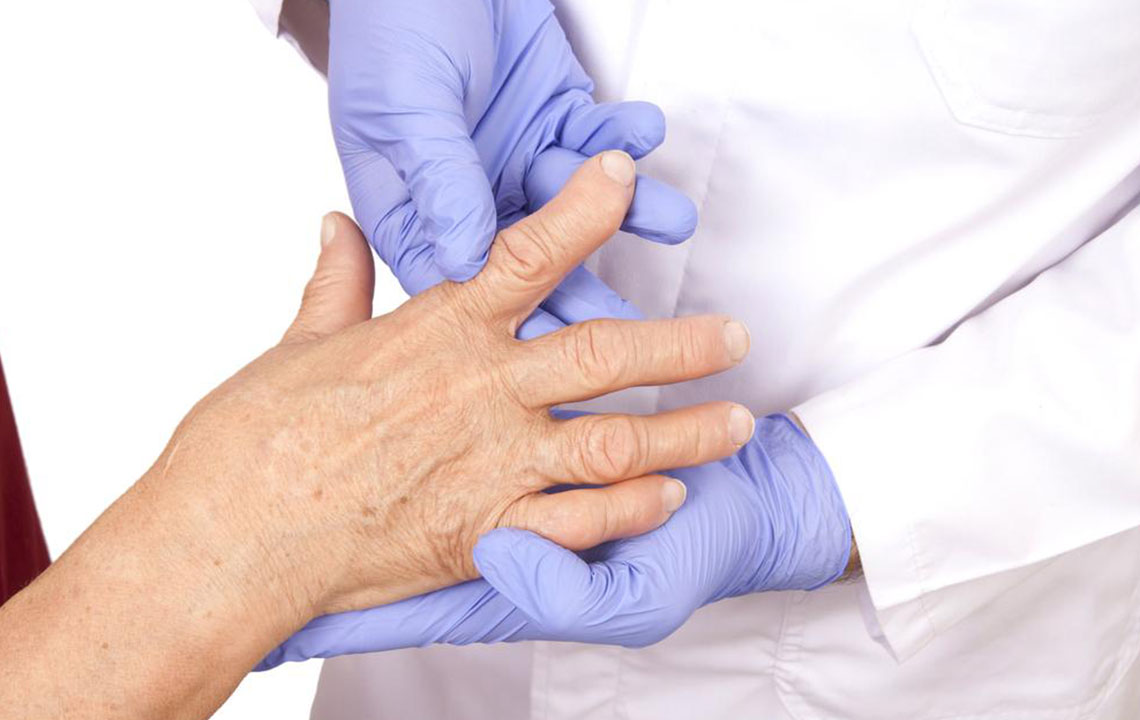How to Detect the Early Signs of Rheumatoid Arthritis
Rheumatoid arthritis is a long-term autoimmune disorder that mainly affects and causes chronic inflammation of joints, making it swollen and painful, and also leads to their stiffness. The wrists and hands are most commonly affected by the same joints involved on both sides of the body. The disease may also affect other body parts, resulting in inflammation around the lungs and heart and a low red blood cell count.
The symptoms of rheumatoid arthritis are such that they appear slowly at first as minor symptoms, which come and go, and over a time span of weeks and months, they gradually progress.

One must start interpreting the early signs of rheumatoid arthritis to start the medications on time to prevent a degradation of their condition. Following are the early signs of rheumatoid arthritis:
- Fatigue
Experiencing an unusual amount of fatigue is one of the most subtle and earliest signs of rheumatoid arthritis. The presence of fatigue is there throughout all stages of rheumatoid arthritis, especially when the joint inflammation is active. Fatigue can also be caused by a reaction to the medications, poor sleep, anemia, and inflammation.
This early sign of rheumatoid arthritis can hurt emotions, moods, relationships, and happiness, thus sometimes initiating depression. The presence of fatigue varies from person to person, and from day to day. - Morning stiffness
Morning stiffness has been noticed to be an early sign of rheumatoid arthritis. Stiffness lasting for a few minutes is often a symptom of degenerative arthritis, but the stiffness that’s last for several hours is a typical symptom of rheumatoid arthritis. The stiffness may also be experienced after prolonged periods of inactivity such as sitting or napping. Doctors tend to measure the severity of the active joint inflammation by the duration of morning stiffness. - Burning feeling or numbness
Amongst the early signs of rheumatoid arthritis, the numbness, burning feeling or tingling feeling in hands has been experienced, and referred to as carpal tunnel syndrome. This happens due to the pressure created on the nerves by the inflammation of tendons. A squeak or crackling noise may be produced from the joints of the hands or feet. This is another early sign of rheumatoid arthritis, caused due to the damaged cartilage grinding against the joints when they are moved. - Fever
Fever has been noticed to be one of the early signs of rheumatoid arthritis as well. But the fever is mostly a low-grade fever, and that too accompanied by other symptoms such as inflammation or joint pain. If a fever of 100 degrees Fahrenheit (38 degrees Celsius) or above is noticed, then the cause is more likely to be an infection. - Stiffness in the joints
Smaller joints experiencing stiffness is one of the common early signs of rheumatoid arthritis. This stiffness has no set pattern and can occur at any time of the day, whether or not you’re active. The joints of the hands are where the stiffness usually begins, and it mostly comes on slowly, but it may even come on suddenly and affect many joints within the span of a few days. - Pain in the joints
Joint pain when moving or at rest, often follows joint stiffness and is one of the most noticeable early signs of rheumatoid arthritis. The most common sites are the fingers and wrists where the joint pain occurs. Joint pain in the feet, ankles, knees or shoulders are amongst some of the early signs of rheumatoid arthritis as well. This pain affects equally on both sides of the body. - Reduction in motion range
Difficulty in bending or straightening of joints that have been caused by the inflammation is yet another early sign of rheumatoid arthritis. The tendons and ligaments tend to become unstable or deformed due to the inflammation of the joints. - Minor swelling in the joints
One of the typical early signs of rheumatoid arthritis is the mild inflammation of joints, causing the joints to appear bigger than normal. Sometimes the joint swelling may be mild and thus difficult to appreciate, while other times the swelling is quite apparent. The swelling leads the joints to feel warm to touch which is helpful to detect in the early stages.
Various other early signs of rheumatoid arthritis
Apart from those mentioned above, there have been various other early signs of rheumatoid arthritis. These signs, mentioned below, are comparatively minor, and are usually are in tandem with and also because of those mentioned above:
- Difficulty in sleeping
- Loss of weight
- Loss of appetite
- Dryness in the mouth
- A feeling of malaise
- Discharge from the eyes
- Inflames, dry or itchy eyes
- Hard bumps of tissue found under the skin of the arms
- Pain in the chest when breathing
On the advent of any of these early signs of rheumatoid arthritis, consult your doctor immediately, to start with your treatment. With medication started at the right time, the toll of rheumatoid arthritis on your body can be lowered significantly.